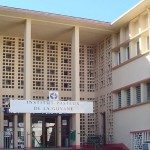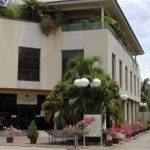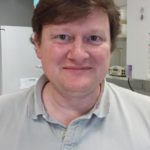Lien vers Pubmed [PMID] – 24834503
Lien vers HAL – Cliquez ici
Lien DOI – 10.1111/mec.12696
Mol Ecol 2014 Apr; 23(8): 1979-93
Pathogens, which have recently colonized a new host species or new populations of the same host, are interesting models for understanding how populations may evolve in response to novel environments. During its colonization of South America from Africa, Plasmodium falciparum, the main agent of malaria, has been exposed to new conditions in distinctive new human populations (Amerindian and populations of mixed origins) that likely exerted new selective pressures on the parasite’s genome. Among the genes that might have experienced strong selective pressures in response to these environmental changes, the eba genes (erythrocyte-binding antigens genes), which are involved in the invasion of the human red blood cells, constitute good candidates. In this study, we analysed, in South America, the polymorphism of three eba genes (eba-140, eba-175, eba-181) and compared it to the polymorphism observed in African populations. The aim was to determine whether these genes faced selective pressures in South America distinct from what they experienced in Africa. Patterns of genetic variability of these genes were compared to the patterns observed at two housekeeping genes (adsl and serca) and 272 SNPs to separate adaptive effects from demographic effects. We show that, conversely to Africa, eba-140 seemed to be under stronger diversifying selection in South America than eba-175. In contrast, eba-181 did not show any sign of departure from neutrality. These changes in the patterns of selection on the eba genes could be the consequence of changes in the host immune response, the host receptor polymorphisms and/or the ability of the parasite to silence or express differentially its invasion proteins.




